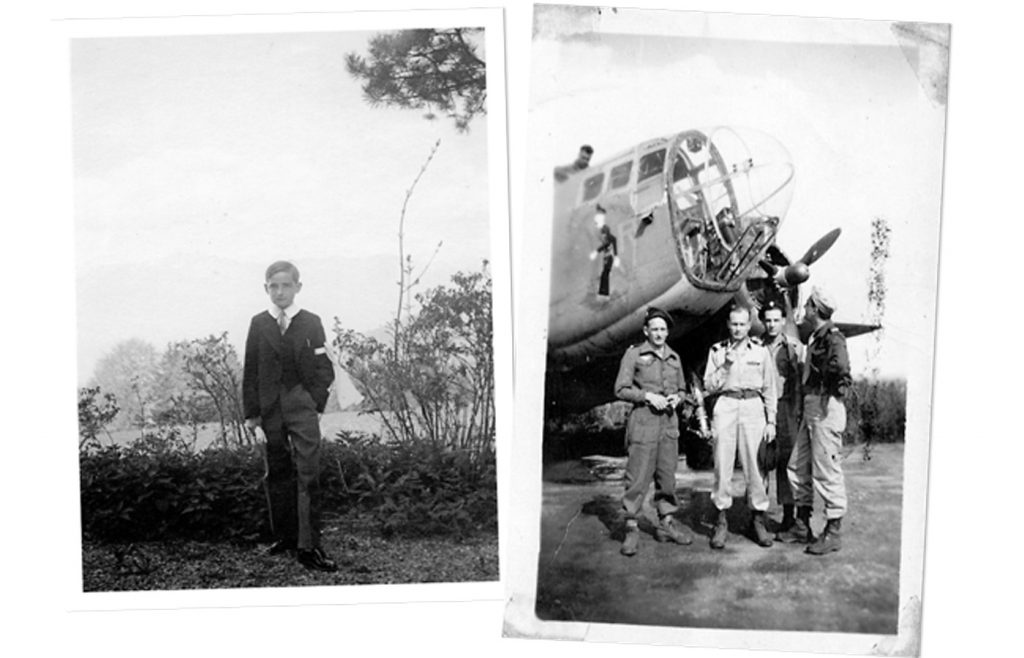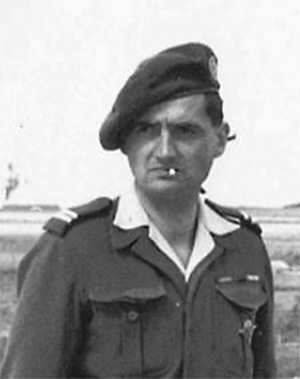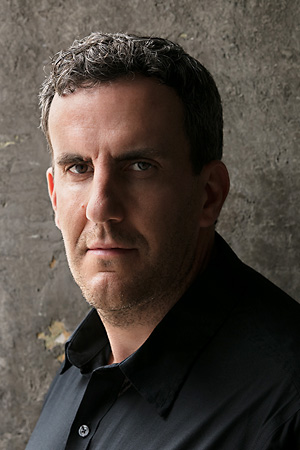
Iowa native Paul Kix has written a history book that reads like a rip-roaring adventure story. The Saboteur: The Aristocrat Who Became France’s Most Daring Anti-Nazi Commando is the story of Robert de La Rochefoucauld, a man who while still a teen decided he must stand against the Nazis and those in his homeland who would submit to them. His tale of heroism is never less than gripping, and is filled with dangerous missions, narrow escapes, and dark periods when all seemed lost.
Kix, who grew up in Hubbard, studied journalism at Iowa State University, and is currently a deputy editor at ESPN The Magazine, discovered his subject wholly by accident.
“I was reading the New York Times one day, just flipping through, and I just happened across the obituaries for that day. And one of them was Robert’s,” he remembers. “The title said something like, ‘Aristocrat, saboteur, man who dressed as nun to evade the Nazis and his own execution dies at 88.’ So just the headline itself was really captivating. I read through it, and I thought immediately, ‘Man, this would be a great book.’ ”
The idea of writing about La Rochefoucauld stuck with him, but various obstacles seemed to stand in the way. “Perhaps most importantly,” he says, “I didn’t speak French.”
Eventually, he reached out to the family. He also acquired a copy of La Rochefoucauld’s memoir, which had not been translated into English.
“My wife and I set about the very arduous task of going literally line by line with Robert’s memoir and then plugging it into Google Translate, while I myself was doing daily French lessons through various apps on my phone—trying to get to the point where I could gain some sort of proficiency with the language.”
As one might imagine, translating a book via Google Translate is a tall order. You might understand any given phrase, “but once you start to go sentence by sentence and then paragraph by paragraph, you start to lose a sense of the narrative on the page.”
He persevered, however, and eventually felt comfortable having his agent pitch the book to various publishers. Once HarperCollins signed on, Kix could leave Google behind.
“At that point, I had Robert’s memoir properly translated, and then the real work began. I spent four years researching this book in five countries.” His research revealed the details of his subject’s adventures—but also turned up some true horrors.

“There’s sort of two notes to this story. The first is a somewhat happy and blithe note where you’re seeing Robert find his way through all these adventures and it’s kind of fun, right? It’s like the Hollywood version of it,” he says. “But then there’s this second, dark, more somber note that is about a few different things. One of them is the very real threat that Robert endured at the hands of the Nazis, and the other is the more existential threat of living in occupied France and not knowing who was your friend and who was your foe. And I wanted both of those notes to be present and—to continue the musical metaphor—sort of harmonize throughout the book, so that there was this melancholic sense you got as you progressed through it, even though what Robert is doing is kind of amazing.”
La Rochefoucauld is a fascinating character, but Kix was also deeply interested in the nature of the country the man was trying to liberate—even as that country seemed to give up.
“The thing that ended fascinating me the most was occupied France. I wanted occupied France to almost be this antagonist in the book, a character in itself. That’s primarily because I found it so complex. There really isn’t an American parallel here because we have never as a nation been occupied by a foreign country. But, for me, it’s very easy to think about what would happen. I am not so sure that the United States would react all that differently from France.” He points to the active and passive resistors, but they were not universally supported. “You also had a vast swath of the population that did absolutely nothing, that were apathetic. And then there is a surprisingly large portion of the population—some scholars put it at about 20 percent—that were openly collaborating with the fascist regime.”
For many, the arrival of the Nazis went from shocking to normal in an amazingly short period of time.
“I can see how something like that could happen over the course of six months or a year,” Kix says. He offers a thought experiment to reveal the effects of war weariness on the French people—people who had borne the brunt of much of the fighting during the Great War.
“How would America have reacted if, I don’t know, 5 years after, even 20 years after the Civil War, the Confederacy rose again and said ‘We’re going to fight it again,’ and for some reason they were even more powerful than they had been the last time? . . . It’s easy to understand how a Western Democracy could have reached this point where they were just so war weary.”

Kix has packed his return to Iowa with events. Among his stops: his hometown library in Hubbard on April 8, the Scenic Route Bakery in Des Moines on April 9, Prairie Lights in Iowa City on April 10 at 7 p.m., Indian Hill Community College in Ottumwa on April 11 at 6:30 p.m. , and the public libraries in Ames and Marshalltown on April 14.
“I’m excited to come back . . . . And hopefully at each those events we’ll have a good turnout—and hopefully people will buy the book, too.”
Buying the book would be my advice. The Saboteur is excellent work highlighting an extraordinary life.
For more about the author, visit PaulKix.com.
